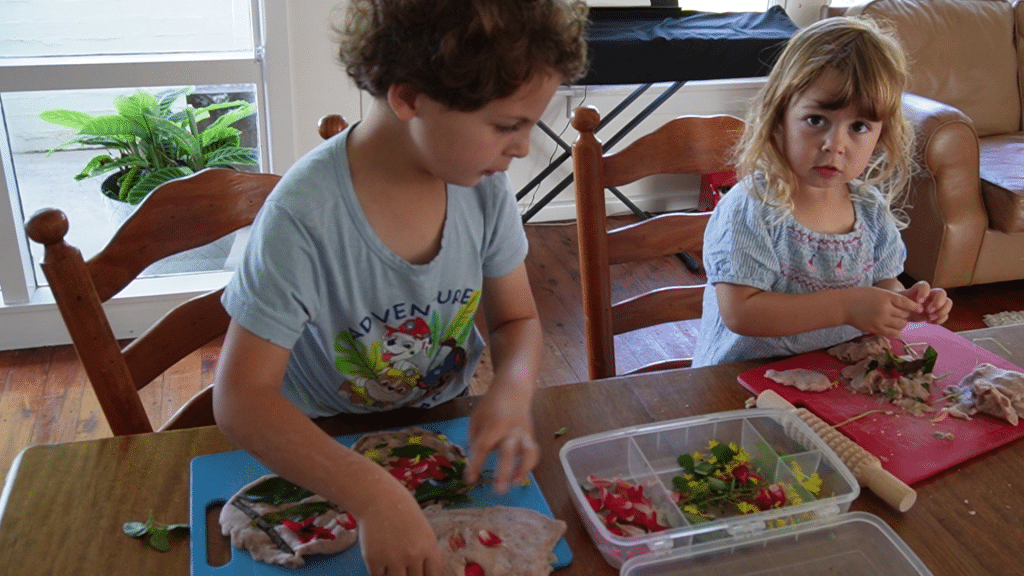
Why Self-Directed Homeschool Curriculums Are So Good!
In the realm of homeschooling, a notable trend has taken root: the growing popularity of self-directed homeschool curriculum programs. The question that arises is: What’s driving this surge? The answer lies in the inherent flexibility these curricula offer. They provide a tailored approach to learning, allowing children to navigate their educational paths at their own pace, striking a balance between thorough understanding and sustained engagement. Beyond this, there are even more compelling reasons why self-directed homeschool curricula are proving to be exceptional choices.
Children Grasp Foundations with Precision
The beauty of self-directed curricula comes to the forefront when homeschooled children encounter unfamiliar foundational topics. In such instances, the ability to adjust their learning speed becomes invaluable. This adaptable pace eliminates the risk of crucial concepts slipping through the cracks. The significance of mastering these foundational elements is far-reaching – their absence can cascade into challenges with advanced concepts, leading to a frustrating learning experience. Self-directed curricula act as a remedy, granting children the time and space they need to conquer these intricate concepts.
Efficiency in Skipping Redundancy
Another advantage of self-directed homeschool curricula is the freedom for students to bypass repetitive work. In some cases, students might have already encountered the assigned material through prior instruction, be it from their parents or a previous homeschool curriculum. Occasionally, they might have grasped a concept during their initial study and no longer require repetition. Regardless of the circumstances, there are instances when students are already well-versed in the assigned content, and repetition is unnecessary. By adopting a self-directed learning curriculum, students have the flexibility to skip such familiar work and delve directly into uncharted territories of learning. This tailored approach optimizes their time and attention, propelling them toward new horizons of knowledge.
Study at a Faster Pace
One of the benefits of self-directed programs is the remarkable acceleration of a child’s learning journey. Within the realm of traditional education, students are confined to their designated grade levels. However, the flexibility of self-directed homeschool curricula enables students to venture into territories beyond their expected grades. Imagine a child passionately engaged in a specific subject, hungry for more knowledge than a standard curriculum can offer. Here’s where self-directed learning shines; it allows children to satiate their thirst for learning and immerse themselves in a topic they adore. This approach aligns seamlessly with interest-based learning, nurturing a genuine passion for education. The outcomes are astounding – the journey becomes a joyous exploration, enhancing the child’s learning experience. For instance, consider my son Luke, who’s captivated by social studies. Driven by his curiosity, he dives into one lesson after another, occasionally even conquering five lessons in a single day! This fervor for the subject has propelled him two entire grades ahead of his traditional school level. This sort of accelerated pace is only possible if you’re using a self-directed program.
Study at a Slower Pace
Beyond acceleration, self-directed curriculum programs extend a compassionate hand to those who need a slower journey. The flexibility inherent in such curricula allows students to tailor their learning pace to their unique needs. This accommodation becomes especially crucial in situations involving mental or physical disabilities. Self-directed programs eliminate the stress associated with keeping up with an unyielding schedule, offering a nurturing environment where students can thrive without undue pressure. My son, Luke, excels in various subjects, but he faces challenges when it comes to reading. Despite his proficiency in other areas, his journey with reading is characterized by a more moderate pace. This is because he finds less enjoyment in the subject, and the intricacies of reading have yet to click into place for him. The beauty of self-directed learning lies in its ability to cater to such individual needs, ensuring that the process remains supportive, stress-free, and conducive to sustained progress.
Flexibility
Flexibility is a hallmark of self-directed programs. When life presents challenges like a new family member or a loss, these programs offer the freedom to slow down without penalty. Unlike rigid systems, self-directed curricula understand that learning can be influenced by life’s ups and downs, ensuring a compassionate and adaptable approach to education.
Individualized Learning
Self-directed programs, like Apologia, provide a canvas for children to shape their own educational experiences. With a huge range of homeschool courses at their fingertips, students can curate their curriculum to match their preferences. They have the freedom to dive deeply into subjects that ignite their curiosity and opt out of those that don’t resonate. This customized approach, anchored in a child’s passions, not only optimizes learning but also cultivates a lifelong love of education—a fundamental goal of homeschooling, as often highlighted on my homeschool channel, How to Homeschool.
Less Stress
Learning in a stressful environment can hinder students from reaching their full potential. The mind becomes divided — one part fretting over schedules and deadlines and the other part struggling to concentrate on the material. This doesn’t foster a positive learning experience; instead, it can discourage engagement and hinder a student’s ability to excel. Such an atmosphere isn’t conducive to nurturing a lifelong love of learning. Enter self-directed courses, the antidote to this stress. These programs remove the pressure and allow children to dedicate as much time as they need to their work and explore subjects that captivate their interest. The ticking clock no longer dictates their learning journey, fostering an environment where enthusiasm flourishes, and genuine learning takes center stage.
Self-Directed Learning
With self-directed curricula, students become the captains of their learning ship. They steer their education, making their own choices about what and how they learn. But here’s the really cool part: this independence doesn’t stop with studies. It carries over to other life skills, like managing time and setting goals, making them even more skilled at taking charge of their own lives – something homeschoolers excel in. Of course, the ability to lead their studies isn’t just useful for homeschool days. It’s a valuable tool that prepares them for whatever future career they choose. Being able to work independently becomes an asset that helps them succeed down the road. So, self-directed learning isn’t just about now – it’s about equipping them with abilities to conquer their future, too.
More Creativity!
We’ve all been there – starting a project with big dreams, only to find time slipping away. We had this vision of creating something amazing, but reality had other plans due to time constraints. Well, say hello to self-directed programs, the champions of homeschooling! They give students the precious gift of time to polish their creations. With these programs, homeschoolers can dive deeply into perfecting their projects, exploring new ideas, and making things even better on their own timetable. The best part? No clock-watching. It’s a realm where creativity thrives, and innovation knows no limits.
Family Bonding
Homeschooling offers a great chance for families to bond. Thanks to programs like Apologia, children can learn side by side with their parents. This shared learning adventure creates a unique connection. As kids engage in discussions and interact with their parents over the material, a stronger family bond naturally grows. This joint learning experience fosters closeness, enriching both education and family relationships.
The Bottom Line
When all is said and done, self-directed learning is often a much better choice for homeschools than more schedule-oriented programs. These programs offer a more individualized and flexible education. They offer more time for family bonding and creativity in young brains. These programs are also less stressful and encourage children to become self-directed lifelong learners – one of the most important things we want to be encouraging in our homeschoolers. I love self-directed courses like Apologia, and I’ve reviewed Apologia here to check out.




